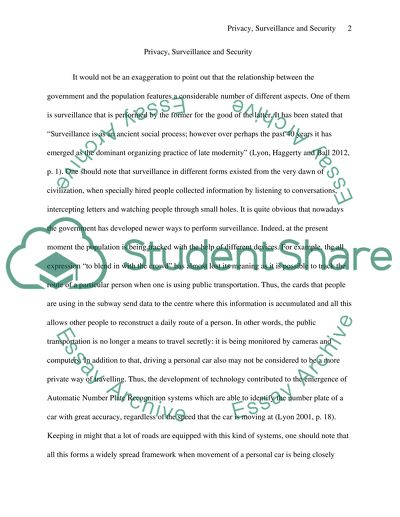Cite this document
(“Privacy, Surveillance and Security Essay Example | Topics and Well Written Essays - 1500 words”, n.d.)
Privacy, Surveillance and Security Essay Example | Topics and Well Written Essays - 1500 words. Retrieved from https://studentshare.org/sociology/1671691-privacy-surveillance-and-security
Privacy, Surveillance and Security Essay Example | Topics and Well Written Essays - 1500 words. Retrieved from https://studentshare.org/sociology/1671691-privacy-surveillance-and-security
(Privacy, Surveillance and Security Essay Example | Topics and Well Written Essays - 1500 Words)
Privacy, Surveillance and Security Essay Example | Topics and Well Written Essays - 1500 Words. https://studentshare.org/sociology/1671691-privacy-surveillance-and-security.
Privacy, Surveillance and Security Essay Example | Topics and Well Written Essays - 1500 Words. https://studentshare.org/sociology/1671691-privacy-surveillance-and-security.
“Privacy, Surveillance and Security Essay Example | Topics and Well Written Essays - 1500 Words”, n.d. https://studentshare.org/sociology/1671691-privacy-surveillance-and-security.


